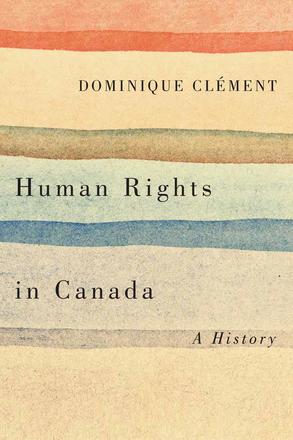
Description
This book shows how human rights became the primary language for social change in Canada and how a single decade became the locus for that emergence. The author argues that the 1970s was a critical moment in human rights history—one that transformed political culture, social movements, law, and foreign policy. Human Rights in Canada is one of the first sociological studies of human rights in Canada. It explains that human rights are a distinct social practice, and it documents those social conditions that made human rights significant at a particular historical moment. A central theme in this book is that human rights derive from society rather than abstract legal principles. Therefore, we can identify the boundaries and limits of Canada’s rights culture at different moments in our history. Until the 1970s, Canadians framed their grievances with reference to Christianity or British justice rather than human rights. A historical sociological approach to human rights reveals how rights are historically contingent, and how new rights claims are built upon past claims. This book explores governments’ tendency to suppress rights in periods of perceived emergency; how Canada’s rights culture was shaped by state formation; how social movements have advanced new rights claims; the changing discourse of rights in debates surrounding the constitution; how the international human rights movement shaped domestic politics and foreign policy; and much more. In addition to drawing on secondary literature in law, history, sociology, and political science, this study looked to published government documents, litigation and case law, archival research, newspapers, opinion polls, and materials produced by non-governmental organizations.
Awards
- Long-listed, Foreword INDIE Book Awards 2016
Reviews
Dominique Clément takes us on an invaluable journey through history, law, politics and society, examining how those forces have embedded human rights at the heart of what it is to be Canadian. From the political rebellions of the 1830s, through to highly charged social change in the 1970s and ground-breaking Supreme Court rulings in 2015, there is hardly a crackdown, social movement or court ruling of human rights significance that is not woven into this remarkable account. He stresses throughout that Canada’s rights culture has been a continuing evolution, reflected as much in ongoing social dialogue as it is in laws that have been passed. Understanding our unique national rights culture helps illuminate the past. It also importantly frames the human rights challenges and responsibilities that lie ahead.
- Alex Neve, Secretary General, Amnesty International Canada (English Canada), Alex Neve, Amnesty International Canada (English Canada)
In remarkably lucid prose, Dominique Clément reveals the evolution of Canada’s rights culture from British conventions to post-Charter innovations, from civil liberties to human rights, from mere equality before the law to ‘the most sophisticated human rights legal regime in the world.’ Along the way, he reminds us that rights don’t exist in the abstract, that they evolve within a culture as that culture evolves, that the rights revolution is far from complete, especially for Indigenous Canadians, and that in the end, ‘human rights are, and always should be, a dialogue.’ An invaluable book.”
- John Ibbitson, Writer at Large, The Globe and Mail, John Ibbitson